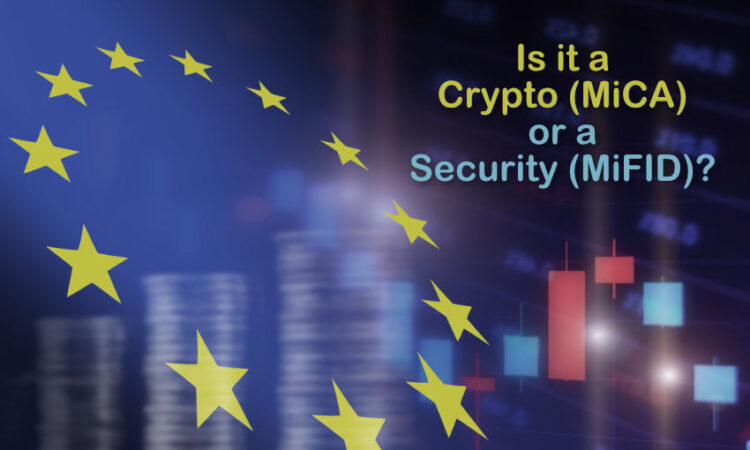When is an asset a security (MiFID) versus a crypto (MiCA)? ESMA receives stakeholder feedback – Ledger Insights

On January 29 the European Securities and Markets Authority (ESMA) launched two consultations relating to the EU’s MiCA crypto-asset regulations. One relates to providers from third countries promoting crypto in the EU. The other covers when a crypto-asset falls under the new MiCA regulations rather than the MiFID II securities laws.
ESMA’s Securities and Markets Stakeholder Group (SMSG) provided feedback today, largely agreeing with ESMA on many points.
If a crypto asset service provider (CASP) is involved with financial instruments, it must also be regulated under MiFID II. The concept of a financial instrument is generally technology agnostic and includes transferable securities, money market instruments, funds, derivatives and emission allowances.
Several popular crypto-assets would be considered as financial instruments. For example, a tokenized money market fund or even a derivative relating to an underlying crypto token.
Definition of a MiFID financial instrument
As previously noted, one of the challenges with MiFID II is that each country implemented the legislation slightly differently. As a result, there’s no common definition of a financial instrument throughout the EU. In the past that’s not been that big a deal, but it is for MiCA.
Hence, the stakeholder group made a suggestion that goes beyond the consultation: it proposes defining financial instruments in a regulation or giving ESMA the powers to determine whether or not a particular asset qualifies.
This messiness regarding definitions could be problematic, particularly because of the EU passporting concept. That allows a CASP to be licensed in one member state and operate throughout the EU.
For example, say the CASP is regulated in Ireland and wants to sell a crypto-asset in France. If the Irish regulator considers the asset is a crypto, it believes the CASP can proceed. However, if the French regulator believes the asset is a financial instrument, without the CASP having a MiFID license, transactions in France wouldn’t be allowed. This goes against the whole EU passporting concept.
The stakeholder response covered several topics but made a very practical suggestion. Whenever an asset is being sold, the distributor should disclose which framework applies to the transaction – MiCA or MiFID II.






